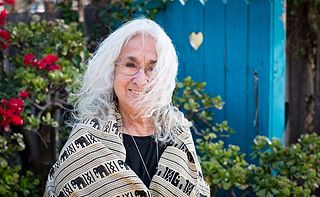A Quote by Shannon Purser
The most evil and insidious thing about mental illness is that it isolates us and makes us feel so different that we think no one can possibly relate.
Related Quotes
Healing of the physical without the change in the mental and spiritual aspects brings little real help to the individual in the end. How true, because the mind and the body imprint and imitate each other. What we think, we become. What we become, we think. It's an insidious process that can predispose us to illness or it can lead us to health.
When you have mental illness you don't have a plaster or a cast or a crutch, that let everyone know that you have the illness, so people expect the same of you as from anyone else and when you are different they give you a hard time and they think you're being difficult or they think you're being a pain in the ass and they're horrible to you. You spend your life in Ireland trying to hide that you have a mental illness.
I've never had a sustained period of medication for mental illness when I've not been on other drugs as well. It's just not something that I particularly feel I need. I know that I have dramatically changing moods, and I know sometimes I feel really depressed, but I think that's just life. I don't think of it as, "Ah, this is mental illness," more as, "Today, life makes me feel very sad." I know I also get unnaturally high levels of energy and quickness of thought, but I'm able to utilize that.
Chris would use the spiritual aspect to try to motivate us. "He'd tell us to think about all the evil in the world, all the hatred, and imagine ourselves running against the forces of darkness, the evil wall that was trying to keep us from running our best. He believed that doing well was all mental, a simple matter of harnessing whatever energy was available.
Most people, if they think at all about the dictionary, think of it as this fixed object given to us from on high. It is the thing that legitimizes language and makes language real. You never think that it's actually compiled by living, breathing nerds like me. When you realize that it's compiled by people, it becomes a different thing, a different kind of document.
We've seen the struggle, and we know that most American families are dealing with some sort of struggle like we are. And I think they can relate to us, you know, as parents who are hopeful and are supportive of our son, and we will continue to be supportive. And I think that makes us more empathetic about helping other Americans.
Before you can kill a demon, you have to be able to say it's name. Names have power. While the word Alzheimer's terrorizes us, it has power over us. When we are prepared to discuss it aloud, we might have power over it. It's thought of as a mental illness and it is a physical illness, affecting the brain. There should be no shame in having it, yet people still don't talk about it




































